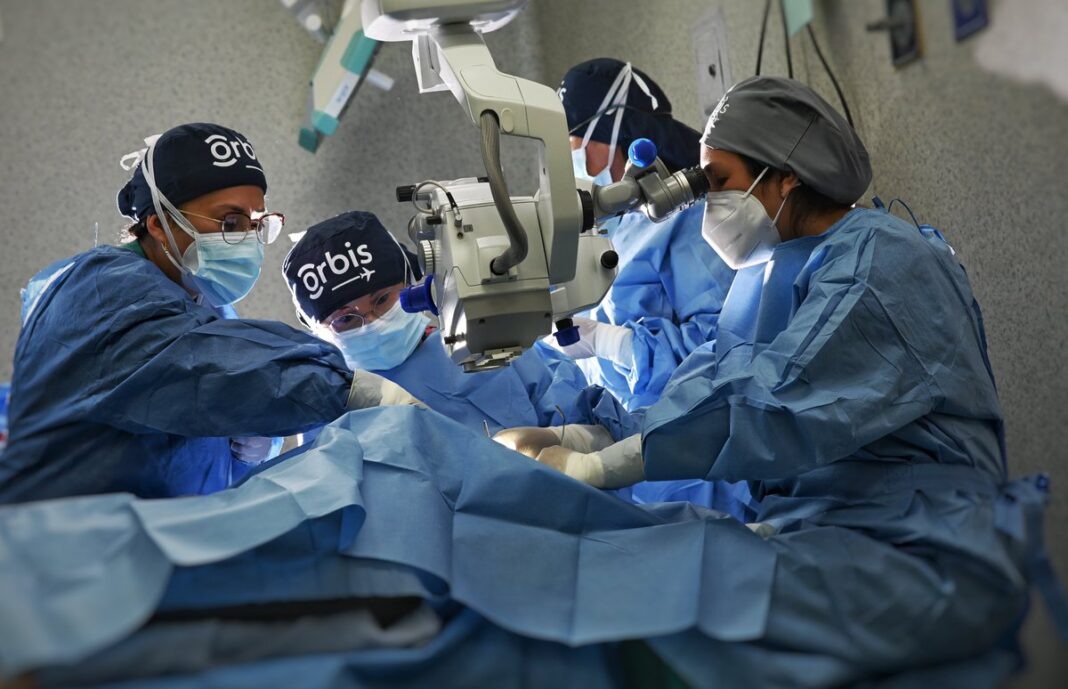Orbis International, along with FundamentalVR, has officially announced the launch of a new immersive virtual reality (VR) training solution, which is designed for healthcare use in low- and middle-income countries. According to certain reports, the stated solution comes decked up with an ability to help aspiring students perform surgery for cataracts, the world’s leading cause of blindness, despite being treatable with a short operation. In practice, the tool integrates VR, haptic feedback, cloud assessment data, and off-the-shelf hardware to create a comprehensive solution for cataract surgical training in resource-limited settings. You see, once the VR simulation is successfully integrated with haptics, it goes on to provide a highly realistic experience for eye-care professionals, who can then practice each step repeatedly to strengthen their understanding of both basic and difficult techniques. Another detail worth a mention regarding this solution would be how it enables independent learning through automated performance monitoring and feedback. Such a feature can be especially useful for medical professionals who may not have access to robust ophthalmic training opportunities. Anyway, we referred to the tool’s promise of letting users hone their skills in a realistic simulation, but what we still haven’t mentioned is that they can also supplement their learning with Cybersight, Orbis’ telemedicine and e-learning platform.
“Our partnership with Orbis International not only underscores our commitment to advancing the field of ophthalmology but also highlights the immense potential of VR in creating safer, more effective learning environments for healthcare professionals,” said Richard Vincent, co-founder and CEO of FundamentalVR. “Our goal is to elevate patient outcomes and redefine the standard of surgical proficiency on a global scale, advancing the quality of healthcare across borders.”
Moving on, the new VR solution in question even has an affordable angle to it, an angle which reveals itself once you consider it uses a simple gaming hardware to deliver on the given value proposition. To make things even more accessible, though, it also focuses more on manual small-incision cataract surgery, which is known as the most common technique performed in low-resource countries when training eye care professionals in the procedure they are most likely to use, This, like you might guess, ensures that the stated professionals are better equipped to treat patients in their own communities.
Developed with funding from the Silicon Valley Orbis Innovation Fund, the tool is already in use at partner hospitals across Bangladesh, China, Mongolia, Ethiopia, and India, quickly becoming in these countries an essential element of eye care education.
“We saw a real need that we could meet,” said Dr. Hunter Cherwek, Vice President of Clinical Services and Technologies at Orbis. “Most existing simulation training tools are expensive, not easily transportable or sourced, and/or train doctors on a surgical method usually only practiced in high-resource areas. Thanks to our partnership with FundamentalVR, we were able to bring a new VR solution to life that makes cataract surgical training accessible no matter where you live.”
For the future, Orbis plans to use VR solutions in the context of training medical professionals to treat glaucoma, strabismus and various other eye conditions. This marks a significant push against the current reality which has around 1 billion people across the globe living with completely avoidable blindness and vision loss.


















